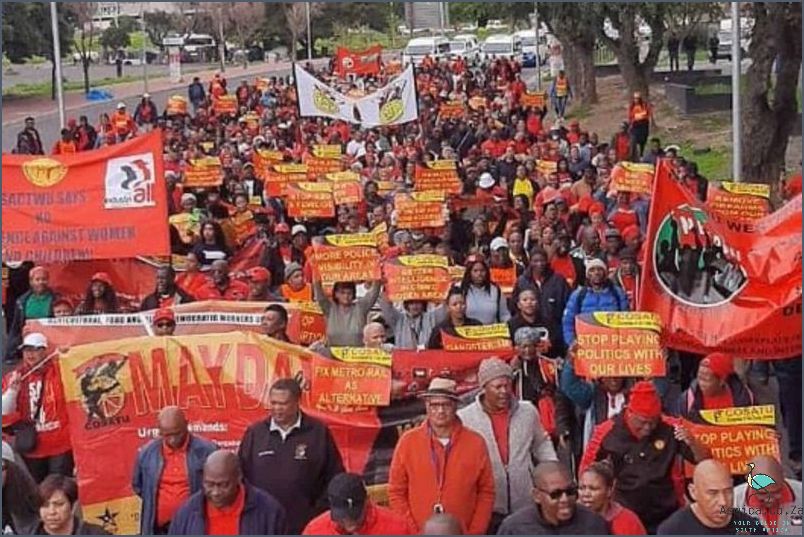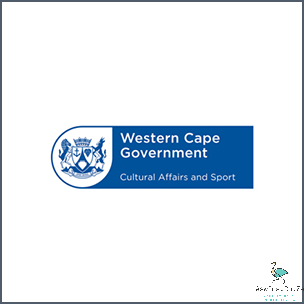
The Western Cape Provincial Government is the provincial government of the Western Cape, a province of South Africa. The provincial government consists of the premier, who is the head of government, and the provincial cabinet.
The Western Cape is the only province in South Africa with a unicameral provincial legislature, the Provincial Parliament of the Western Cape. The provincial government is responsible for the administration of the province. It is also responsible for the implementation of provincial legislation.
The Western Cape Provincial Government is led by the Premier, who is elected by the Provincial Parliament. The Premier appoints a provincial cabinet, which consists of the heads of the various provincial departments.
The Western Cape Provincial Government is responsible for the following areas of provincial government:
– Agriculture and Rural Development
– Economic Development and Tourism
– Education
– Environmental Affairs and Development Planning
– Health
– Human Settlements
– Local Government
– Social Development

– Sports, Arts and Culture
Contents
Western Cape Provincial Government
The Western Cape Provincial Government, led by Premier Alan Winde, is one of the most progressive provincial governments in South Africa. They are working hard to create a safe, prosperous and equitable society. The government is investing in education, health, infrastructure and creating jobs. They are also committed to protecting the environment and promoting sustainable development. The provincial government is also taking a lead in the fight against crime, while investing in initiatives that will create a better future for all residents of the Western Cape. With their commitment to good governance, the Western Cape Provincial Government is striving to create an inclusive society that will benefit all its citizens.
History and Development of the Government
The history and development of the Western Cape Provincial Government is a long and complex one. It dates back to the formation of the Cape Province in 1854, when it was created by the British government as a means of ensuring the orderly governance of the Cape Colony. Over the years, the Cape Province has undergone a number of changes, the most significant of which was the establishment of the Union of South Africa in 1910. This saw the Cape Province become part of the larger Union, and with it came the development of the Western Cape Provincial Government.
The Western Cape Provincial Government was established as part of the constitutional framework of the new Union. The Provincial Government is made up of elected representatives from each of the nine provinces, and its primary purpose is to ensure the smooth functioning of the provincial government. The Provincial Government is responsible for providing public services, ensuring the safety and security of citizens, and representing the interests of the people of the Western Cape.
The Provincial Government has evolved over the years, and today it is responsible for a wide range of responsibilities. It is responsible for managing the province’s economy, providing social services, and promoting education. It is also responsible for the management of public works, infrastructure, and the environment. It is also responsible for providing health services, and promoting cultural development.
The Provincial Government has experienced a number of changes over the years, and with each new change, the Provincial Government has adapted to meet the changing needs of the people of the Western Cape. In recent years, the Provincial Government has become increasingly involved in the promotion of economic development and job creation. It has also worked to improve public services and increase access to education.
The Provincial Government has also played an important role in the development of the Western Cape’s tourism industry. It has helped to promote the region as a tourist destination, and has worked to ensure that the region has a thriving tourism industry.
The Western Cape Provincial Government has been a major player in the development of the Western Cape. It has helped to create a vibrant and prosperous region, and has played an important role in ensuring the smooth running of the province.
Key Structures and Functions of the Provincial Government
The Western Cape Provincial Government is a powerful entity that plays an important role in the day-to-day lives of South Africans. From providing essential public services to creating employment opportunities, the provincial government is integral to economic prosperity. In order to understand the role of the provincial government, it is important to understand its key structures and functions.

The Western Cape Provincial Government is headed by a premier, who is elected by the people and serves as the head of government. The premier is responsible for overseeing the activities of the provincial departments and for carrying out the policies of the provincial government. The premier is supported by a cabinet, which is composed of ministers who are responsible for specific areas of government. These ministers are responsible for implementing policies and delivering services to the people.
The Western Cape Provincial Government is divided into several departments, each of which has its own unique functions. The most important departments are the Department of Education, the Department of Social Development, the Department of Health, the Department of Transport and Public Works, and the Department of Economic Development. Other departments include the Department of Local Government and Traditional Affairs, the Department of Agriculture, and the Department of Arts and Culture.
The provincial government is responsible for delivering essential services such as education, health care, and public services. It also creates employment opportunities, promotes economic development, and provides financial assistance to local communities. The provincial government is also responsible for regulating the use of natural resources, such as water, land, and air. It is also responsible for maintaining and improving infrastructure, such as roads, bridges, and public transport.
The provincial government also works with local municipalities to ensure that services are provided equitably. It also works to ensure that local communities have access to basic amenities, such as electricity, water, and sanitation. Finally, the provincial government is responsible for protecting the rights of citizens, promoting human rights and justice, and fighting corruption.
Overall, the Western Cape Provincial Government plays an important role in the lives of South Africans and is responsible for a range of activities. Through its key structures and functions, the provincial government is able to deliver essential services and promote economic development, while also protecting the rights of citizens.
Challenges and Opportunities Facing the Western Cape Provincial Government
The Western Cape Provincial Government faces a unique set of challenges and opportunities in today’s complex political landscape. From tackling the ever-changing socio-economic issues to promoting a culturally diverse and vibrant community, the provincial government has its work cut out for it.
One of the biggest challenges the provincial government is faced with is inequality. The Western Cape is one of the most unequal provinces in South Africa and has seen a decline in economic activity, particularly in its rural areas. The provincial government must address these issues to ensure that all residents of the province have access to the same opportunities and resources.
The provincial government also faces the challenge of maintaining strong economic growth. Despite the decline in rural areas, the Western Cape has seen an increase in investment, particularly in the tourism and hospitality sector. The provincial government must work to ensure that this investment is sustained and that small businesses are supported in order to bring even greater prosperity to the province.
Another challenge facing the provincial government is the need to promote a culturally diverse and inclusive society. The Western Cape is home to many different cultures, languages, and faiths and it is the provincial government’s responsibility to ensure that all these diverse communities are respected and represented. This involves creating policies that promote a safe and inclusive environment for all citizens and protecting the rights of minorities.
Finally, the provincial government must work to promote sustainable development. This includes developing strategies to reduce carbon emissions and promoting renewable energy sources. It also involves investing in infrastructure and public services that can help reduce poverty and improve the quality of life for all citizens.
The Western Cape Provincial Government has its work cut out for it, but it also has many opportunities to make a positive impact. By tackling inequality, promoting economic growth, and protecting minority rights, the provincial government can create a more prosperous and sustainable future for all.
Conclusion
The Western Cape Provincial Government is committed to providing quality services to the people of the Western Cape. The department has a wide range of services and programs that are designed to meet the needs of the people of the Western Cape. The department is also responsible for the administration of the province. The Western Cape Provincial Government is committed to the principles of good governance and is committed to the development of the province.




